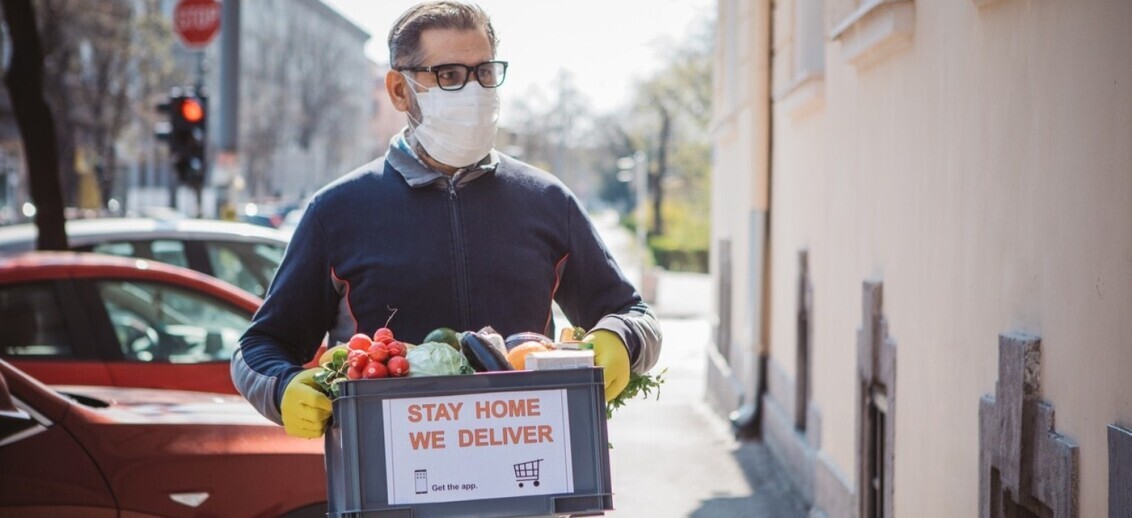On Tuesday, the San Francisco Board of Supervisors passed an emergency ordinance meant to supplement and clarify the city’s current “shelter in place” and other emergency health orders during the COVID-19 pandemic as it applies to grocery stores, drug stores, restaurants, and on-demand delivery services. The ordinance contains two main components of protection: (1) requiring on-demand delivery services to provide certain protections to their workers and (2) providing additional scheduling flexibility for grocery store, drug store, restaurant, and on-demand delivery workers.
The ordinance’s primary effect would be to worker protection beyond traditional “employees” to include workers who the company may be treating as independent contractors. Specifically, the measure states that the protections would extend to “any person who in a particular week performs at least two hours of work” for a covered company within San Francisco without regard to whether the worker is classified as an employee or independent contractor by the company and includes, “without limitation, shoppers and drivers for an On-Demand Delivery Service” (called “qualified workers” in the remainder of this article).
The ordinance will go into effect when Mayor London Breed signs the measure, or fails to sign or veto the measure within 10 days. The ordinance will expire 61 days after enactment or when the public health emergency ends.
Protections for Workers of On-Demand Delivery Services
Although the existing health orders already require essential business employers to provide employees with cleaning products, face masks, social distancing protocols, physical distancing guidance, and to regularly disinfect high-touch surfaces, this emergency measure clarifies that these requirements would extend to “on-demand delivery services” and their gig workers, even if those workers are classified as independent contractors by the company. In particular, by extending protections to all qualified workers (e.g., shoppers, drivers, and any other gig workers for on-demand delivery services) this emergency ordinance expands upon a health order that already went into effect on April 17, which requires all essential workers to wear face coverings when at work in most settings.
Under the ordinance, on-demand delivery services must provide qualifying workers, including drivers and shoppers, with the following:
- necessary hand sanitizer, disinfecting cleaning supplies, and any needed personal protective equipment such as gloves and face masks (or they must reimburse workers for the reasonable cost of purchasing these items);
- a Social Distancing Protocol (as set forth in the existing city shelter-in-place order) in a manner calculated to reach all workers via electronic communication, and/or by posting conspicuously on the company’s web-based or app-based platform;
- a “no-contact” delivery method for workers who make deliveries, where feasible, with detailed guidance on how to safely make both in-person and no-contact deliveries; and
- must require delivery drivers to regularly disinfect high-touch surfaces in their vehicles and compensate them for doing so.
On-demand delivery services subject to this portion of the measure are defined as any “a third-party online or mobile application or other internet service that offers or arranges for the consumer purchase and same-day or scheduled delivery of food products, medications, or other goods directly from no fewer than 20 restaurants, grocery stores, drug stores, and other Essential Businesses.”
Right to Schedule Changes
The measure also provides scheduling protections for qualifying workers of (a) on-demand delivery services; (b) grocery stores, supermarkets, convenience stores, restaurants, cafes, or other establishments primarily engaged in the retail sale of food; and (c) drug stores, pharmacies, or other establishment primarily engaged in the retail sale of medication, pharmaceuticals, or medical supplies. These types of companies must, where reasonably feasible, allow qualifying workers to cancel work for any reason for which sick leave (under San Francisco’s Paid Sick Leave Ordinance) or emergency paid sick leave (under the federal Families First Coronavirus Response Act) may be taken. Qualifying workers may use any available accrued paid sick leave or emergency paid sick leave, or reschedule the work.
The measure includes anti-retaliation protections that prohibit interfering with any right protected by the measure or taking any adverse action against a worker for exercising their rights under the measure.


